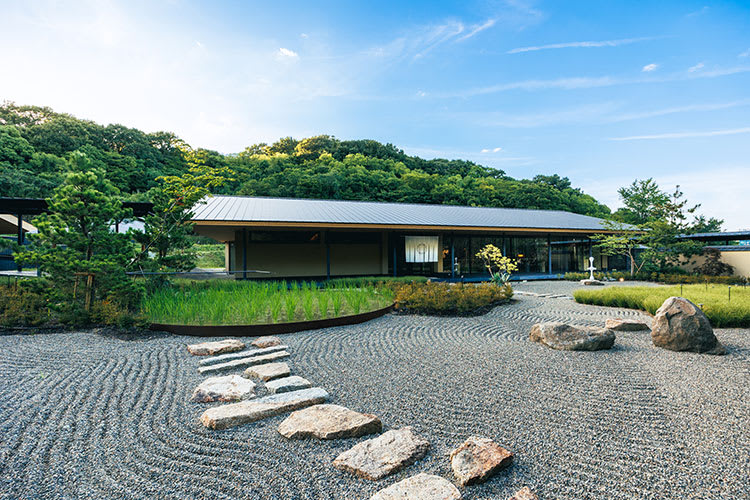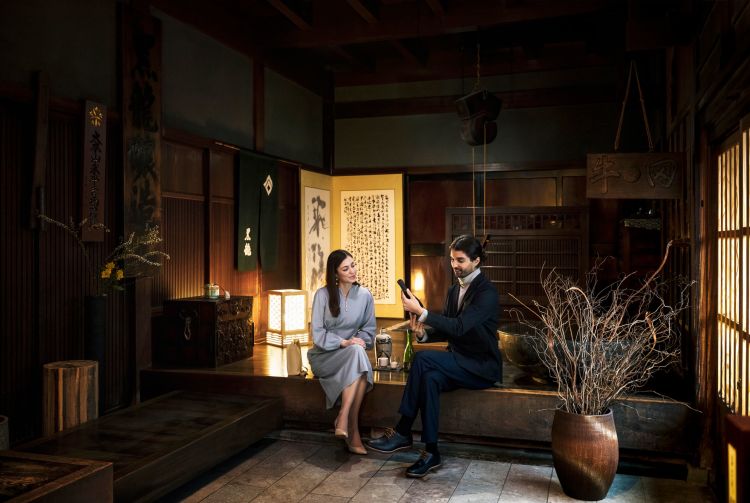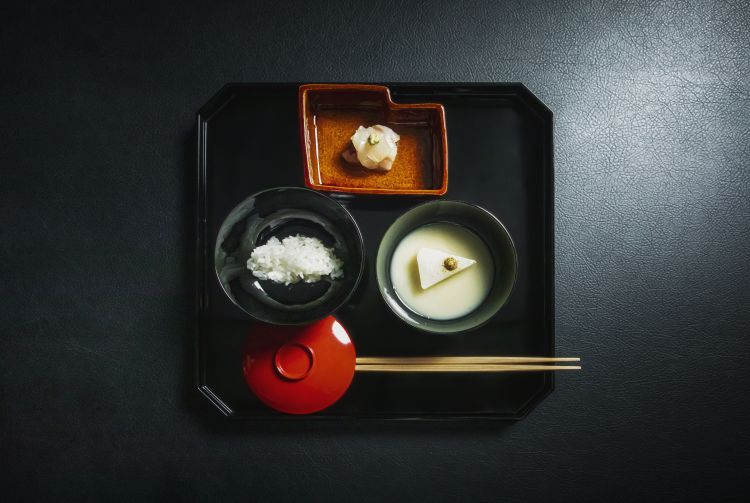Embracing Tradition and Culture through Modern Ryokan
From contemporary five-star hotels to traditional ryokan (Japanese inns), Japan presents a vast array of accommodation choices. These establishments masterfully blend beautiful design and modern amenities with the renowned Japanese hospitality known as omotenashi.
The classic ryokan experience—with its serene tatami-matted rooms, soothing hot springs, and elaborate kaiseki dining—has long been the standard for immersing oneself in Japan’s authentic charm. In recent years, regions once scarce in upscale lodgings have seen the rise of modern luxury ryokan, each offering its own distinctive appeal. These new establishments, highlighting the allure of local landscapes and the richness of the natural world, have made these destinations increasingly attractive and sought-after.
Situated in Niseko, Shiguchi offers a distinctive sanctuary featuring beautifully renovated kominka (traditional Japanese farmhouses). These farmhouses, originally constructed 150 years ago by traditional carpenters, now house five luxurious villas, each an embodiment of traditional Japanese architecture. Within the walls, guests are immersed in a mix of antique and modern ceramics, ink paintings, and sculptures, all part of the private collection of Shouya Grigg, the retreat’s creative director and founder. A stay at Shiguchi offers an experience akin to sleeping in an art museum or gallery, where the essence of traditional Japanese hospitality blends seamlessly with a personal connection with the country’s arts, traditions, and cultural heritage.
Shiguchi's commitment to cultural immersion extends to its adjacent Somoza restaurant and art center, where guests can partake in curated cultural and culinary journeys. These include engaging in the time-honored Japanese tea ceremony in a modern tea room, and participating in activities ranging from ikebana and fine art photography to exploring the wilderness and indulging in wellness therapies.
The presence of artwork throughout the villas and the natural beauty of the surrounding landscape create an environment that is both tranquil and inspiring. Surrounded by abundant nature with no other buildings in sight, Shiguchi invites guests to reconnect with both nature and themselves.

Roka Naoshima elevates the traditional ryokan experience by blending contemporary design, art, and architecture, set against the backdrop of the Seto Inland Sea. The island of Naoshima has long been celebrated for its vibrant art scene, and Roka elaborates on this legacy with a vision to craft a landscape where nature and humanity coexist. Each of the 11 guest rooms features an open-air bath and boasts unique materials that give every space its own identity. The garden reimagines the traditional kare-san-sui raked stone garden, interspersed with striking modern sculptures amid the foliage.
Guests can admire contemporary art pieces by notable artists such as Kohei Nawa, Shohei Yamamoto, Kohei Yamada, Daisuke Yokota, and others in the serene ambiance throughout the property. In line with its dedication to support emerging artists, the artwork displayed in each guest room is also available for purchase.
Roka Naoshima’s most distinctive feature is the intimate pavilion with an irori—a traditional sunken hearth—set by the passageway that connects the two main buildings, serving as a communal hub for guests to engage in conversation. Here, under the stars, guests can sip on house-made yakushu (traditional herbal liquor), converse about art, and savor the unhurried passage of time on the island.

Cova Kakuda in Ise-Shima, Mie Prefecture, is a hidden gem that offers a unique personalized experience. Nestled in a cove along Ago Bay, not far from the revered Ise Grand Shrine, this all-inclusive retreat provides a novel approach to tourism by immersing guests in local life. Once a pearl production facility operated by Kakuda Pearls, Cova Kakuda gracefully combines its historical charm with contemporary elegance, featuring four beautifully designed villa-style guest rooms. The ethos guiding this transformation was to uphold the sustainable harmony between the marine ecosystem and the local community. This philosophy is rooted in the belief that harmonious human interaction with nature causes it to flourish, thereby enriching its offerings and sustaining the people who live and work in tandem with the natural world.
Staff members from the local community eagerly share the delights and marvels of the region as they guide you through an array of activities, including tours of the nearby pearl production facility, kayaking adventures, and a serene sunset cruise. Given its focus on providing fully personalized attention to each guest, it is understandable that it operates on an intimate scale. Guests can indulge in exceptional Japanese culinary creations crafted by a local chef who expertly captures the essence of the season's flavors. Perfect for those seeking a peaceful getaway and an enriching cultural experience, Cova Kakuda provides a genuine opportunity to connect with the local community, potentially reshaping your perspective on travel and broadening your emotional and intellectual horizons

Leading names in the luxury hotel industry have carved out distinctive presences in Japan, merging the lavishness of high-end accommodations with elements that echo Japanese culture and the unique traits of their surroundings. The Ritz-Carlton, Nikko exemplifies this harmonious integration, marrying modern opulence with genuine Japanese aesthetics. Situated in Tochigi Prefecture, a short two-and-a-half-hour drive from Tokyo, it finds its home among the scenic landscapes of Lake Chuzenji and Mount Nantai in Nikko, a renowned hot spring destination enveloped by nature. The Ritz-Carlton, Nikko stands out as the brand's first property to feature the exclusive amenity of an on-site onsen or hot spring. Here, guests can indulge in spacious indoor and outdoor hot spring baths where the healing thermal waters directly piped from historical sources discovered 1,200 years ago promise to restore both body and spirit. This onsen experience is further complemented by an extensive selection of luxury spa treatments delivered with impeccable care.
Each of the 94 guest rooms and suites boasts a private balcony inspired by traditional Japanese engawa verandas and floor-to-ceiling windows providing tranquil views of the surrounding mountains or lake. Inside, the rooms are thoughtfully adorned with Japanese elements, embracing a contemporary minimalist aesthetic. The hotel's four dining and drinking venues highlight the fine local ingredients, skillfully incorporating them into Japanese and Western cuisines alongside the celebrated The Ritz-Carlton afternoon tea and original cocktails. The locale enriches guests' stays with its UNESCO World Heritage-listed temples and shrines and provides a wide variety of outdoor activities linked to the deep spiritual legacy of the region in every season.









